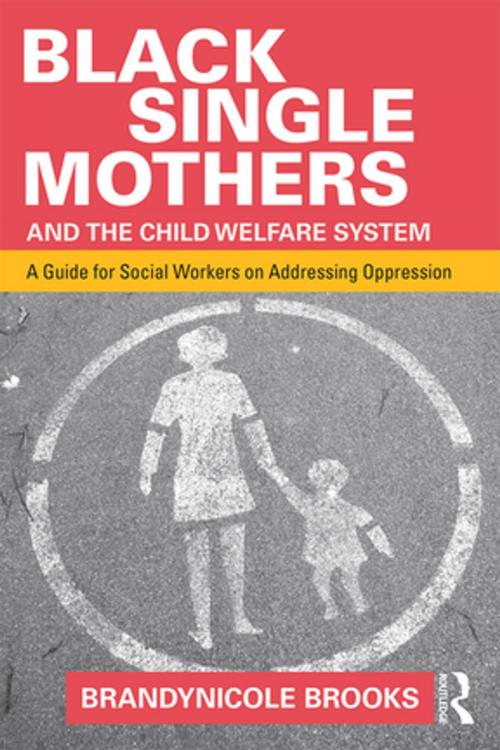Black Single Mothers and the Child Welfare System
A Guide for Social Workers on Addressing Oppression
Nonfiction, Health & Well Being, Psychology, Psychotherapy, Mental Health| Author: | Brandynicole Brooks | ISBN: | 9781317449027 |
| Publisher: | Taylor and Francis | Publication: | November 19, 2015 |
| Imprint: | Routledge | Language: | English |
| Author: | Brandynicole Brooks |
| ISBN: | 9781317449027 |
| Publisher: | Taylor and Francis |
| Publication: | November 19, 2015 |
| Imprint: | Routledge |
| Language: | English |
Black Single Mothers and the Child Welfare System examines the pressures, hardships, and oppression women of color face in the child welfare system, and how this affects social workers who investigate childhood abuse and neglect. Author Brandynicole Brooks addresses intersectionality and ideological, institutional, interpersonal, and internalized oppression and how it affects the safety, permanence, and well-being of children. Through research and real-life examples, the reader will be immersed in a historical perspective of oppression faced by black single mothers involved with social service systems, understand the definition of oppression and its four interrelated facets, examine ways oppression plays out in child welfare supports and services, and discover new integrated methods of addressing oppression. The last chapter discusses theory, generalist social work practice, and transformational leadership styles, which can be used by social workers to advocate on behalf of their clients and inspire self-advocacy, thus transforming child welfare.
Black Single Mothers and the Child Welfare System examines the pressures, hardships, and oppression women of color face in the child welfare system, and how this affects social workers who investigate childhood abuse and neglect. Author Brandynicole Brooks addresses intersectionality and ideological, institutional, interpersonal, and internalized oppression and how it affects the safety, permanence, and well-being of children. Through research and real-life examples, the reader will be immersed in a historical perspective of oppression faced by black single mothers involved with social service systems, understand the definition of oppression and its four interrelated facets, examine ways oppression plays out in child welfare supports and services, and discover new integrated methods of addressing oppression. The last chapter discusses theory, generalist social work practice, and transformational leadership styles, which can be used by social workers to advocate on behalf of their clients and inspire self-advocacy, thus transforming child welfare.















